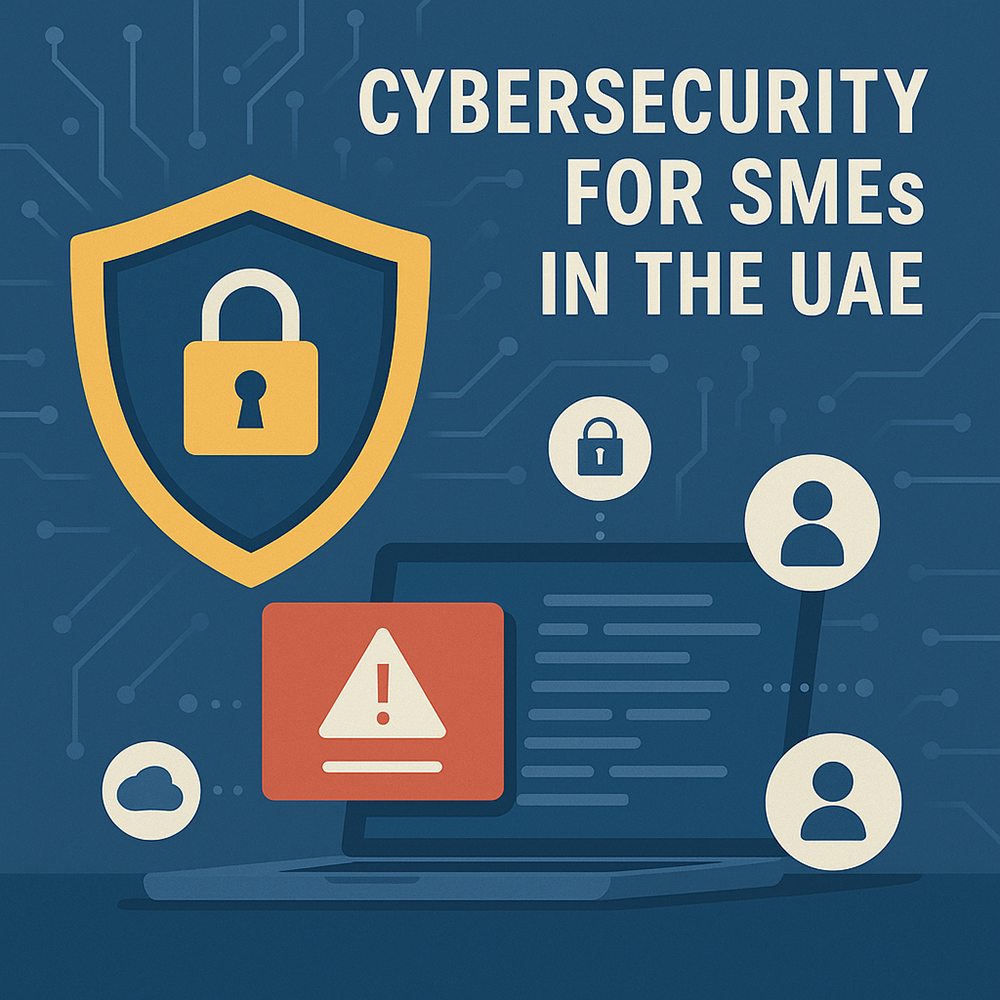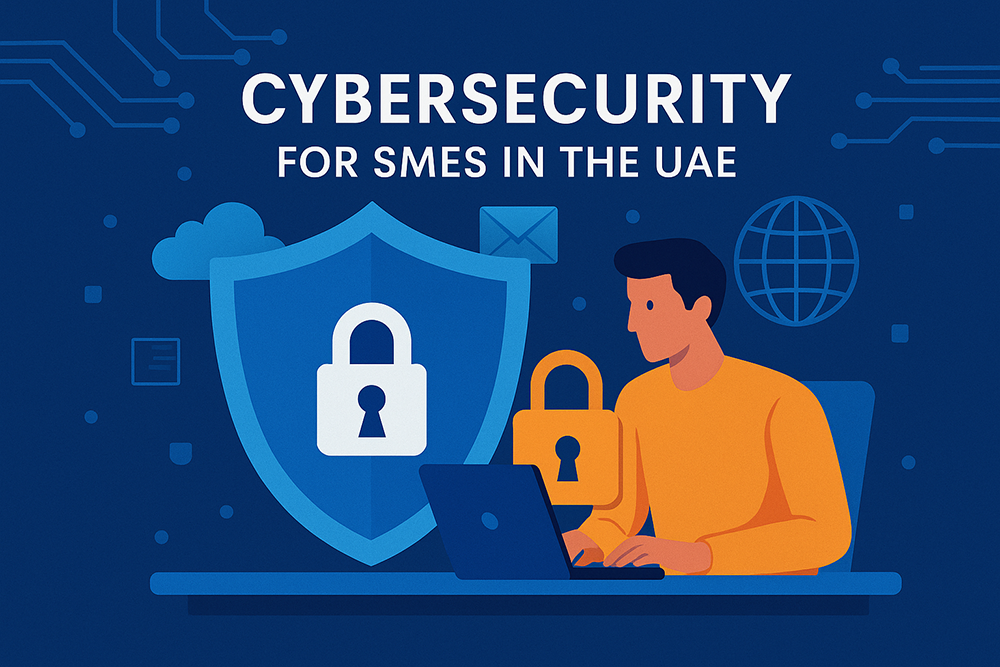In the rapidly expanding digital economy of the UAE, small and medium-sized enterprises (SMEs) are increasingly becoming targets for cyberattacks. While large corporations often have dedicated cybersecurity teams and robust defenses, SMEs frequently operate with limited resources, making them more vulnerable. Protecting your business from cyber threats is not just about safeguarding data; it's about ensuring business continuity, maintaining customer trust, and complying with evolving regulations. This article covers essential cybersecurity tips tailored for SMEs in the UAE.
1. Employee Training: Your First Line of Defense
Human error remains a leading cause of security breaches. Educate your employees about common cyber threats like phishing, ransomware, and social engineering. Conduct regular training sessions on best practices for strong passwords, identifying suspicious emails, safe browsing habits, and data handling protocols. A well-informed workforce is your strongest defense against many attacks.
2. Implement Strong Password Policies and Multi-Factor Authentication (MFA)
Weak passwords are an open invitation for cybercriminals. Enforce policies that require complex, unique passwords for all accounts and regular password changes. More importantly, implement Multi-Factor Authentication (MFA) wherever possible. MFA adds an extra layer of security by requiring users to verify their identity through a second method (e.g., a code from a mobile app, a fingerprint) in addition to their password. This significantly reduces the risk of unauthorized access even if a password is compromised.
3. Regular Software Updates and Patch Management
Software vulnerabilities are frequently exploited by attackers. Ensure all your operating systems, applications, and security software are kept up-to-date with the latest patches and updates. Enable automatic updates whenever feasible. This closes known security gaps and protects your systems from emerging threats.
4. Data Backup and Recovery Plan
Even with the best defenses, breaches can occur. Implement a comprehensive data backup strategy. Regularly back up all critical business data to a secure, off-site location or cloud service. Crucially, test your backup and recovery process periodically to ensure data can be restored quickly and efficiently in the event of a cyberattack, system failure, or natural disaster. This is vital for business continuity.
5. Network Security: Firewalls and Secure Wi-Fi
Deploy and properly configure firewalls to control incoming and outgoing network traffic, blocking unauthorized access. Secure your Wi-Fi networks with strong encryption (WPA2 or WPA3) and unique, complex passwords. Avoid using public Wi-Fi for sensitive business operations. Consider segmenting your network to isolate critical systems from general user access.
6. Endpoint Security: Antivirus and Anti-Malware
Install reputable antivirus and anti-malware software on all company devices, including desktops, laptops, and mobile phones. Ensure these solutions are regularly updated and perform scheduled scans. This helps detect and remove malicious software before it can cause significant damage.
7. Access Control and Least Privilege
Limit access to sensitive data and systems based on the principle of "least privilege." Employees should only have access to the information and resources necessary to perform their job functions. Regularly review and update access permissions, especially when employees change roles or leave the company.
8. Incident Response Plan
Prepare for the worst-case scenario. Develop a clear incident response plan that outlines the steps to take in the event of a security breach. This plan should include who to notify (employees, customers, authorities), how to contain the breach, how to eradicate the threat, and how to recover affected systems. Practicing this plan can minimize damage and recovery time.
9. Secure Cloud Usage
If your SME uses cloud services (e.g., Microsoft 365, Google Workspace, cloud storage), ensure they are configured securely. Understand the shared responsibility model of cloud security, where the cloud provider secures the infrastructure, but you are responsible for securing your data and configurations within that infrastructure. Use strong access controls and encryption for cloud data.
10. Regular Security Audits and Penetration Testing
Consider engaging a cybersecurity expert to conduct regular security audits and penetration testing. These assessments can identify vulnerabilities in your systems and networks that internal teams might miss, providing actionable insights to strengthen your defenses. This proactive approach is invaluable for staying ahead of sophisticated threats.
By implementing these cybersecurity measures, SMEs in the UAE can significantly enhance their protection against digital threats, ensuring the safety of their operations, data, and reputation in the dynamic digital landscape.
Ready to Elevate Your Business?
Whether you need a stunning new website, a powerful marketing strategy, or robust IT solutions, Lumora is here to help. Our team of experts in Dubai is ready to turn your vision into reality.
Contact Us Today

